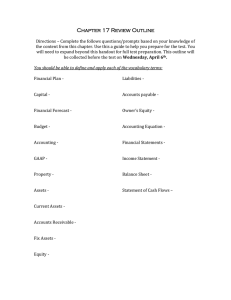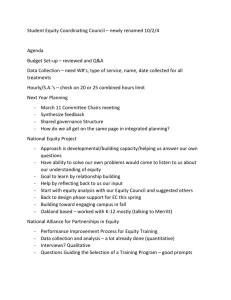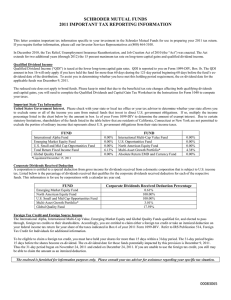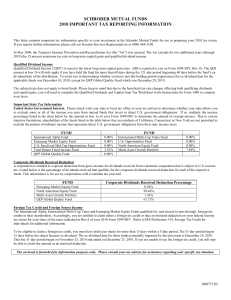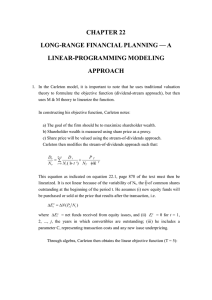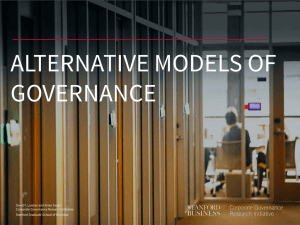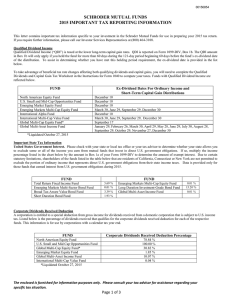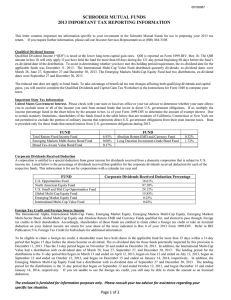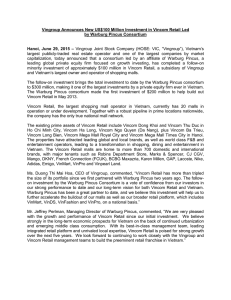Regulations Hindering Private Equity Investment – Perspectives of US Venture Capital –
advertisement
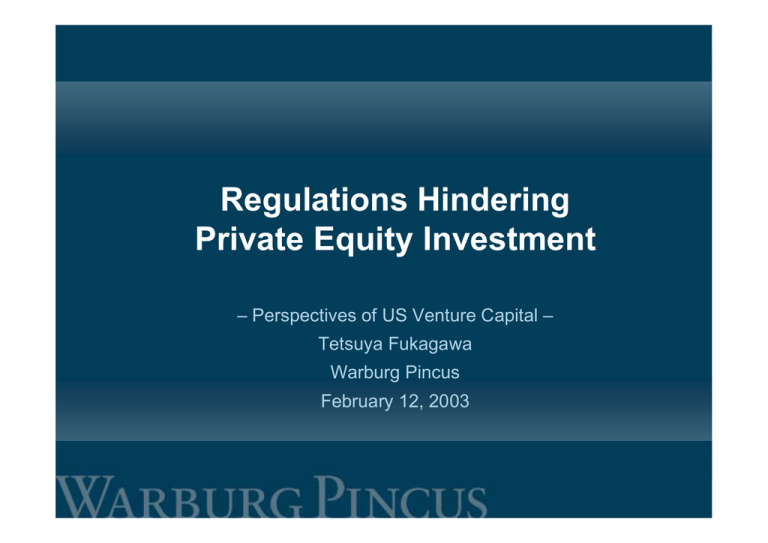
Regulations Hindering Private Equity Investment – Perspectives of US Venture Capital – Tetsuya Fukagawa Warburg Pincus February 12, 2003 Warburg Pincus (WP) • One of the largest private equity firms • Founded 30 years ago • Invested in 450 deals over the last 30 years • Large capital funds − Outstanding investments: $11 billion, Funds available: $5 billion − Investment per deal: $10 million to $500 million • A group of 100 specialists in various industries such as IT, Healthcare, Financial Services, Business Services, Energy, and Real Estate from early stage to LBO/turn around situations • Superior performance • New York, Silicon Valley, London, Munich, Hong Kong, Tokyo, Singapore, Seoul, Beijing • Active investments in Japan since April 1999 2 WP’s Investment Philosophy • Select outstanding management team to create value • Active engagements in portfolio companies’ management − Participate in board of directors − Strategic input − Equity stake of 20% - 80% • Long-term investment – Investment period of 5 years or more • Not asset acquisitions, but investments in corporations • Return from capital gain, not from dividends or interest • Investor – Not a manager of day-to-day operations • Public or private companies, all phases of business • Interest aligned among partners, with management teams and LPs 3 Difficulty in Investing in Japan • Stakeholder capitalism as opposed to shareholder capitalism • Lack of corporate governance • Low level of information disclosure • In principle, if it is not written in law, it is prohibited • Uncertainty of tax treatment 4 Corporate Governance / Lack of Disclosure • US: − ERISA laws require executing voting rights at general shareholders meeting − A detailed agenda and proposals are sent 60 days in advance; investors are given sufficient time to review and make decisions • Japan: − Trustees, insurance companies, and assets managers, not pension fund managers, execute voting rights − Agenda for shareholder meeting without details is sent only 2 weeks before a general meeting − Directors of the board consist of internal employees − CEO’s full discretion and non-disclosure of compensation of directors result in lack of corporate governance from shareholders view 5 Areas of Improvement in Revised Commercial Code • Flexibility of issuance of different classes of shares • Abolition of limitation on parties to whom a company can grant stock options • Change regulation on minimum asset per share • Abolition of upper limitation on the number of shares a company can issue • Lift of ban on pre-IPO equity financing 6 Areas Where Continued Regulation Changes Are Necessary • Minimum capital requirement (currently 10 million yen for K.K.) • Subsequent incorporation: Difficulty in incorporating by contributing assets in lieu of cash; court-appointed inspector’s investigation is required for acquisition of assets worth 5% or more of capital within 2 years from incorporation • Dividends in kind: Payment-in-Kind Securities (Interest and dividends are paid in form of security) are deemed impossible in Japan • Corporate mergers and divisions: Issue/distribution of the following other than voting securities − Subsidiary Stock, Convertible Bonds, Preferred Stock − Cash-out Merger (Distribution of cash, not stock, for absorption mergers) • Can exemptions be made for “comprehensive transfer” of contracts in spin-offs? • Commercial banks’ ability to obtain collateral on demand has hindered development of corporate bond market. 7
